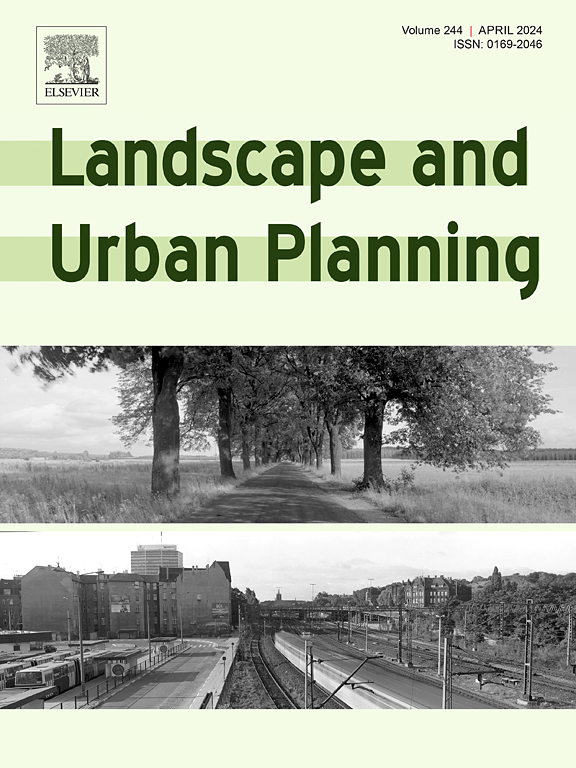将以充足为导向的生活方式和对城市可持续性转型中土地使用变化的社会政治接受结合起来
IF 9.2
1区 环境科学与生态学
Q1 ECOLOGY
引用次数: 0
摘要
要达到欧洲的气候目标,就需要改变生活方式,实现自给自足的理念——用更少的钱生活得更好。尽管人们对充足性的兴趣越来越大,但很少有研究调查居民对更可持续的土地利用的接受程度如何因生活方式的不同而不同。本文的目的是研究城市生活方式与土地使用变化的社会政治接受度之间的关系,包括芬兰南部城市和社区放弃碳密集型交通和住房实践的意愿。我们对赫尔辛基、拉赫蒂和Länsiväylä附近的居民随机抽样进行了一项在线调查,共收集了896份调查回复。聚类分析用于区分一组城市生活方式,这些生活方式的充足性取向各不相同,随后与社会政治对土地利用变化的接受程度有关。我们发现,以充足为导向的居民通常更喜欢步行和公共交通,他们更有可能接受各种土地利用变化,以支持城市地区的可持续发展成果。我们还发现,社会政治对土地利用变化的接受程度与生活方式集群之间的关系存在地域差异。总之,我们的研究结果可以帮助以更有针对性的方式解决城市中紧迫的环境挑战。本文章由计算机程序翻译,如有差异,请以英文原文为准。
Integrating sufficiency-oriented lifestyles and socio-political acceptance of land-use changes in urban sustainability transformations
Reaching European climate targets calls for lifestyle changes aligned with the idea of sufficiency – living well with less. Despite increased interest in sufficiency, little research has examined how residents’ acceptance of more sustainable land-uses varies across lifestyles with different levels of sufficiency orientation. The aim of this paper is to examine the relationships between urban lifestyles and socio-political acceptance of land-use changes, including willingness to give up carbon-intensive mobility and housing practices across cities and neighbourhoods in southern Finland. We administered an online survey to a random sample of residents in Helsinki, Lahti and the neighbourhood of Länsiväylä and collected a total of 896 survey responses. Cluster analysis was used to distinguish a set of urban lifestyles that vary in their sufficiency orientation, which were subsequently related to socio-political acceptance of land-use changes. We found that sufficiency-oriented residents often prefer walking and public transport, and they are more likely to accept various land-use changes in support of sustainability outcomes in urban areas. We also found locational differences in the relationships between socio-political acceptance of land use change and lifestyle clusters. Together our findings can help in addressing the pressing environmental challenges in cities in a more targeted way.
求助全文
通过发布文献求助,成功后即可免费获取论文全文。
去求助
来源期刊

Landscape and Urban Planning
环境科学-生态学
CiteScore
15.20
自引率
6.60%
发文量
232
审稿时长
6 months
期刊介绍:
Landscape and Urban Planning is an international journal that aims to enhance our understanding of landscapes and promote sustainable solutions for landscape change. The journal focuses on landscapes as complex social-ecological systems that encompass various spatial and temporal dimensions. These landscapes possess aesthetic, natural, and cultural qualities that are valued by individuals in different ways, leading to actions that alter the landscape. With increasing urbanization and the need for ecological and cultural sensitivity at various scales, a multidisciplinary approach is necessary to comprehend and align social and ecological values for landscape sustainability. The journal believes that combining landscape science with planning and design can yield positive outcomes for both people and nature.
 求助内容:
求助内容: 应助结果提醒方式:
应助结果提醒方式:


